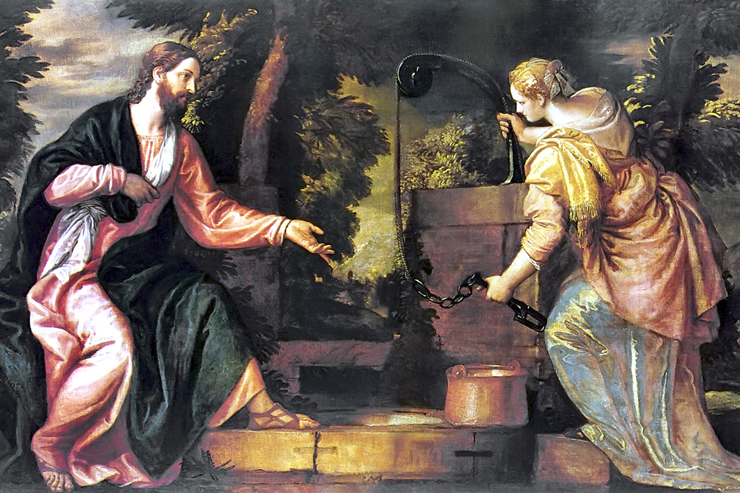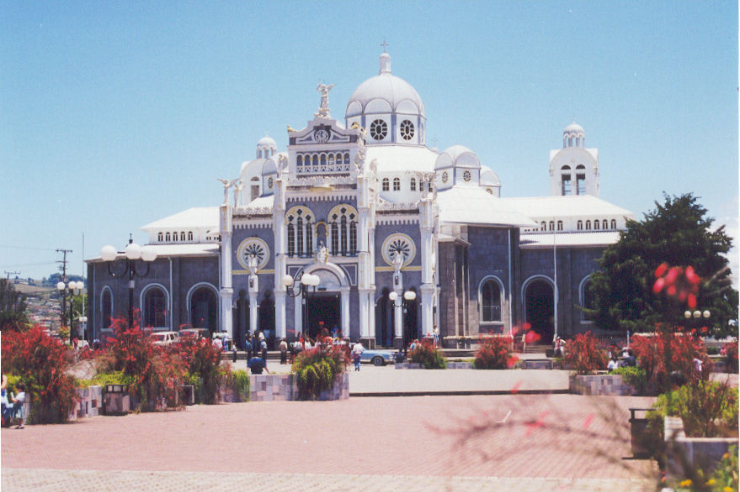“If you knew the gift of God.”
Jesus tired and thirsty sat down at a well and there encountered a Samaritan woman who had come to draw water. Asking her for a drink,
“He said to her, ‘If you knew the gift of God and who is saying to you, Give me a drink, you would have asked him and he would have given you living water…Everyone who drinks of this water will be thirsty again, but those who drink of the water that I will give them will never be thirsty. The water that I will give will become in them a spring of water gushing up to eternal life.’” (John 4:10; 13-14)
Water is mentioned seven hundred twenty-two times in the scriptures. In the Genesis account of creation in the very first chapter and in the second line we learn one thing about God’s work—that He provided this gift that would be crucial to every living being that would later be created. Apart from that there was simply a formless mass.
When Jesus spoke of ‘living water’ the woman would have understood this to be fresh water as a regularly available commodity that would save her from making so many trips to the well. Although more than 70% of the earth is covered with water about 96.5% of this is found in the oceans and only about 1% of all the water on earth is fresh water that we can actually use. Fresh water was precious and Jesus had definitely caught her interest and attention.
But Saint Teresa likewise catches our attention when she refers to the stages of prayer as “waters of prayer.” Why this term? Water has movement; it flows. In contemplative prayer we speak of the inflow of grace into the soul, a movement of the Holy Spirit. “This grace pours into us in the unity of our higher powers and of our spirit; wherefrom, through the power of the grace received, the higher powers flow out to become active in all virtues, and whereto, because of the bond of love, they ever return again.” (Blessed John of Ruysbroeck)
How does grace work in our life of prayer? Anyone who loves a garden will appreciate Teresa’s attempt to simplify her response by choosing the various ways, available in her day, of bringing water into a garden. The first two stages involve a great deal of effort on our part. After all, if we set out to create a garden we must care enough about the outcome to put in the labor required.
Jesus had asked the Samaritan woman to draw water from the well to slake His thirst. Saint Teresa uses this very same example as the first means by which we are to slake our own thirst. Thus the First Water or the first stage of prayer requires considerable exertion on our part – we must draw the water from the well. As she will explain later in the “Interior Castle”, prayer is the means of entry into the Castle. Just as providing enough water to meet our needs will require numberless trips to and from the well, so too our perseverance in prayer will require a parallel in self-denial, cooperation with grace and growth in the practice of the virtues in order to be a true follower of Christ. This ascetical stage corresponds to the first Three Mansions and includes both vocal prayer and meditation. It is the preparatory ground for the Fourth Mansion when God intervenes more directly.
Saint Teresa indicates however that many do not go beyond the Third Mansion. What is accomplished in the first three mansions is what the person in maturing can achieve through human effort accompanied by grace. Having reached this limit there can be a comfort level in what has been achieved and a resistance to further surrender. This is brought out in Marks’ account of the “Rich Young Man”.
And as he was setting out on his journey, a man ran up and knelt before him and asked him, “Good Teacher, what must I do to inherit eternal life?” And Jesus said to him, “Why do you call me good? No one is good except God alone. You know the commandments: ‘Do not murder, Do not commit adultery, Do not steal, Do not bear false witness, Do not defraud, Honor your father and mother.’” And he said to him, “Teacher, all these I have kept from my youth.” And Jesus, looking at him, loved him, and said to him, “You lack one thing: go, sell all that you have and give to the poor, and you will have treasure in heaven; and come, follow me.” Disheartened by the saying, he went away sorrowful, for he had great possessions. (Mark 10:17-31)
Jesus was very direct in what He proposed to the young man. Before He invited him into participation of the Gift of Living Water, He pointed him in the right direction, “go, sell all that you have…”. Teresa refers to those who make it thus far as earnest souls who have a well-regulated life, are zealous in keeping the commandments and avoiding sin and seeking to advance further in the spiritual life as shown by his question: what must I do to inherit eternal life? Jesus invited him to take the leap of faith by letting go, not only of his material riches but also of those spiritual riches he had zealously acquired through human effort aided by grace. The young man, although obedient to the commandments was not up to this further obedience. Jesus sadly watched him walk away enslaved by his attachments.
The Second Water, while still strenuous, is not as labor-intensive as the First: the use of a water wheel with dippers attached. As the wheel turns, the dippers pour the water into a trench which in turn carries the water to the garden. Here, in this Fourth Mansion, we touch upon the supernatural, the beginning of infused contemplation, in which the divine light penetrates the understanding, whereas in the “prayer of quiet”, it penetrates the will. Teresa describes this prayer as a bubbling fountain which brings with it a deep sense of peace arising from the deepest recesses of the soul. We cannot strive after this as it is a total gift of God. Our goal is love of God, not consolation nor self-interest. Although God gives this to whomever He wishes we can dispose ourselves through the practice of detachment, humility and obedience. With these dispositions we are becoming conformed to Christ.
In the Third Water the Lord Himself takes over the watering of the garden through irrigation. Whereas in the First Water the well could run dry and one would have to wait until it filled up again, in this Third Water the Lord provides an endless stream of water for irrigation. This is the Fifth Mansion in which the Lord enters the center of the soul. In the prayer of simple union the interior faculties of memory and imagination are penetrated with the divine light of the Holy Spirit. As the soul becomes transformed it undergoes a radical detachment from worldly concerns. The garden is becoming lush with blooms. There are different levels or intensifications of this mystical prayer of union. Once the soul has experienced this indwelling it retains a certainty of the experience.
The Fourth Water or the falling of rain on the garden: “…you shall be like a watered garden, like a spring of water, whose waters do not fail” (Isaiah 58:11).
Here in this Sixth Mansion the Betrothal takes place. The soul may experience extraordinary mystical encounters. As the Holy Spirit takes over and penetrates more deeply into the soul the exterior senses will likewise be affected. The souls that have come thus far will have many trials to undergo before entering the Seventh Mansion, the final stage of mystical contemplation. There is no need here for extraordinary mystical encounters for action and contemplation live in harmonious relationship with each other. Here the spiritual Marriage takes place. Teresa compares the gentle rain that falls into a river as the soul and God that once mingled cannot be separated.
Everyone loves a garden! It is a piece of paradise sometimes found within a drab environment. It reminds us of our first beginnings before the Fall when Adam and Eve walked with God in the cool of the evening in the Garden. George Bernard Shaw once wrote, “The best place to find God is in a garden. You can dig for him there.” St. Teresa demonstrates how in the first three Mansions we must become the gardener, the laborer who digs, turns the soil, pulls out the weeds, sets the plants, and tugs the rope to draw water for the well. When Jesus sees our intense effort, might He not be prompted to come sit on the edge of the well, ask us for a drink, and then encourage us with the words, “If you knew the gift of God?”
By Sister Mary Colombiere, O.C.D.
Carmelite Sisters of the Most Sacred Heart of Los Angeles
To learn more about the Carmelite Sisters of the Most Sacred Heart of Los Angeles, read their biography below and visit their website.
We encourage you to support the work of the sisters with your prayers and through donations and planned giving. Click here to learn more..
If you hear God calling you to the religious life, I encourage you to visit their vocations page. – Deacon Mike
Or for more information, please contact:
Sister Faustina, O.C.D., Vocation Directress
920 East Alhambra Road
Alhambra, California 91801














